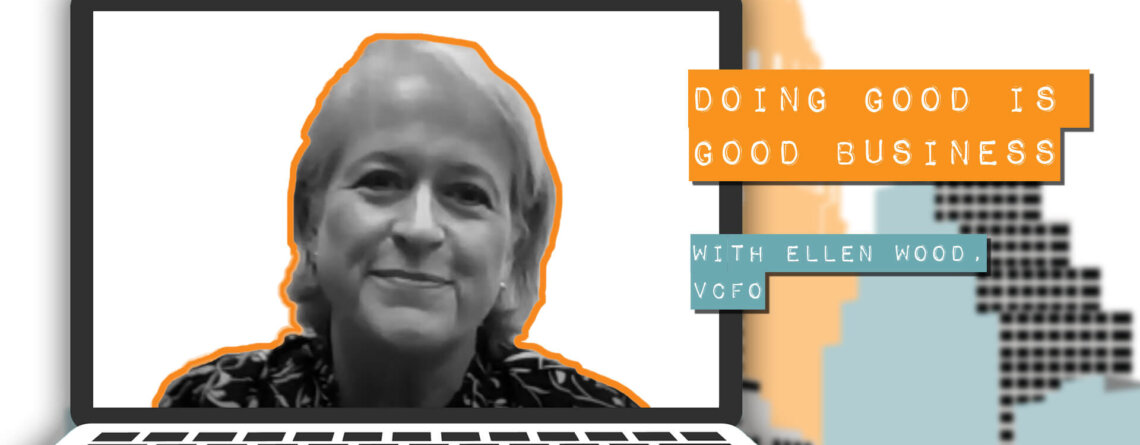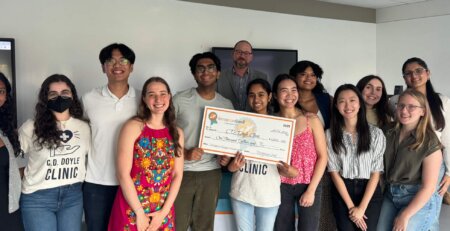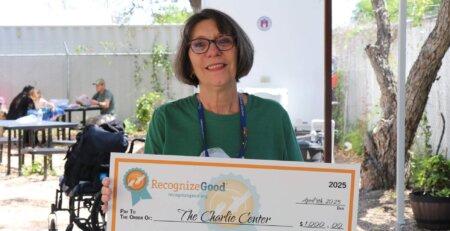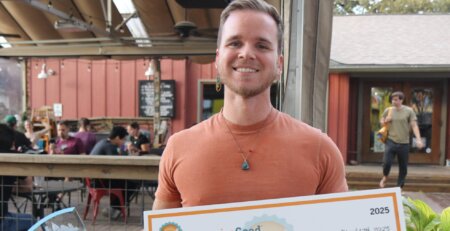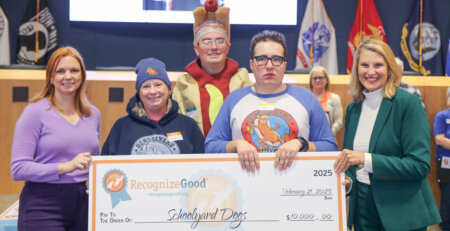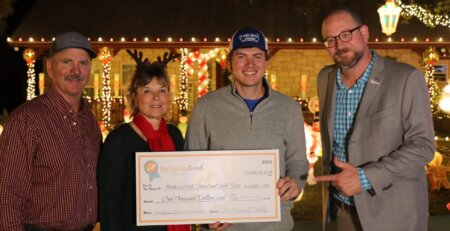Right Thing = Good Business w/ Ellen Wood, vcfo
Amit Pal2024-01-12T19:27:35-06:00 02Jun
RecognizeGood: A tiny staff can be family atmosphere very easily. Really large staff can have all the policies and procedures that you can shake a stick at. You are kind of right there in the middle where it’s a big family. What’s been your general strategy at vcfo on the importance of taking your personal values and kind of implementing them in a semi-structured way so that everybody is on the same page. What’s your general philosophy on that? Ellen Wood: Well, I think that started with the definition of what our key principles are in the company, and the number one is integrity. I would say that’s the number one attribute, if you will, for what I look for personally, as well as what we look for in the company. The way that we bring our values into the company starts with recruiting. I think it may be the very first thing they talk about, just to make sure that that we’re the kind of place that folks want to work. We really don’t have a lot of trouble with that because we are so specific about what we’re looking for and what our expectations are.
Being the owner of the company is a lovely thing to be able to set your own course and make sure that folks are following what you think is important.For me personally, it’s just a requirement for me to work with someone in any capacity in my life. Whether it’s a friend, a neighbor, a vendor, client, and certainly employees – they have to have integrity at the top of the list as a financial and HR or professional services firm. It’s extremely important that we walk that talk. Fortunately for me, my personal interest and belief is very well aligned with what I think is professionally necessary from folks in our field. RecognizeGood: We’ve seen that from our end too – if you set the expectations really clearly in the beginning, you don’t have many problems down the line. There’s a trust that’s built there. Have you seen the trust that all 76 other employees there have? Not necessarily just because of the pandemic, but during trying times, have you seen the trust equity that you built up over time pay off when the times get tough? Ellen: I think the trust equity that we’ve built and that people rolled onto when they joined vcfo was a huge key to our success in getting through the pandemic as successfully as we did. I’ve absolutely seen that here. We have a group of employees who, instead of looking for what might be negative, they look for what was positive. There’s very little misunderstanding that would go a negative route as opposed to a positive route, and I really think that’s been very important. RecognizeGood: How much does it mean to you as an owner that you’re not only perfecting your culture within your four walls, but also helping spread that to clients and other companies to help the community at large? Ellen: I do think it’s meaningful to be able to take our belief in how to run a small business or medium-sized business to our clients and help them with elements of culture. We do that. We do that both by example from our teams that are in the field, but also with our professionals who are often engaged to come in and help a client put together their own program. When it comes to diversity, equity and inclusion, the tragic incident last summer ripped the Band-Aid off of an issue that had not been addressed nationwide. I’m one of millions of people who would probably make the same comment, but for me personally, I have learned so much in the journey that our team has been on – both for ourselves and as we prepare to help our clients with those issues. I have learned it from our staff, our folks on board who came together and agreed to form our own DEI committee.
They call themselves the vcfo VIBE Committee and they have taken the pulse of what our folks knew about [DEI] and what we needed to know. And then they have undertaken to design education, training, and camaraderie through social hours to talk about the issues. I’ve just been so appreciative of them and proud of the work that they’ve done and personally grateful for what I have learned. I had no idea how much I did not know and that just says there’s a whole lot I still don’t know.RecognizeGood: That’s great, and that’s powerful. When it’s just checking a box, it probably does more harm than good, but when it’s backed by a leader like yourself and everyone knows it’s genuine, it opens everybody’s eyes and it feels like your workplace is more purposeful as a result. It’s not just a place to build your widgets or push your paper around. It’s really an educational platform as much as it is a business. Ellen: I give all the credit to our vcfo VIBE Committee. They came together and have kindly educated those of us who have not faced adversity in the way some of them have. I think we also have a wonderful senior leadership team who, without exception, have embraced the importance of this and stressed it with their teams. We’ve tried to meet everybody where they are on the journey and bring them along in learning new things. But again, all the credit goes to our vcfo VIBE Committee. RecognizeGood: What are your personal values beyond integrity and how were those shaped? Ellen: That’s a great question. I’m going to have to say I am so fortunate because my parents modeled that behavior and I wonder sometimes if people are just naturally born with certain values, or if it is largely a nature versus nurture question. My parents did a wonderful job, in my opinion, of setting a very high bar on how to treat people – on charitable giving, on honesty and integrity. I would give them all the credit for setting the example that I’ve chosen to follow. RecognizeGood: How do you help build trust in important areas like handling finances and people for your clients? Ellen: Well, I think the way that we did that in the early days of the company was probably different than today. Now we have 5,000 clients behind us and a lot of word-of-mouth experience and knowledge, and that’s very helpful. We’re very upfront in telling our clients that we’re so glad they’re doing what they’re doing because if they weren’t, we wouldn’t have a job. It’s not that we know what they’re doing. I think it’s important to make it clear that while we may be experts in our lane, we don’t know everything, and it’s okay to not know everything. That’s one of the first questions that we ask employees. “How would you handle a mistake if you made one or you discovered one on a client engagement?” That is a filter that we use in terms of how we bring people on board. RecognizeGood: What’s one reason you think maybe some CEOs have a tough time implementing personal values into the rest of the company? Ellen: It is a process. You have to believe in it and you have to demonstrate it and you have to reinforce it and reward it. You also have to address where it’s not working, and that is a job in itself. At vcfo, we use a program called Entrepreneurial Operating System, which is out of the book Traction. We recommend it to many of our clients as well. One of the requirements is to regularly measure all of your employees against your values, so it gives you a structure to work within. I think that for those who find structure challenging, adopting a management operating system, whether it’s EOS or something else, is a really good idea.
